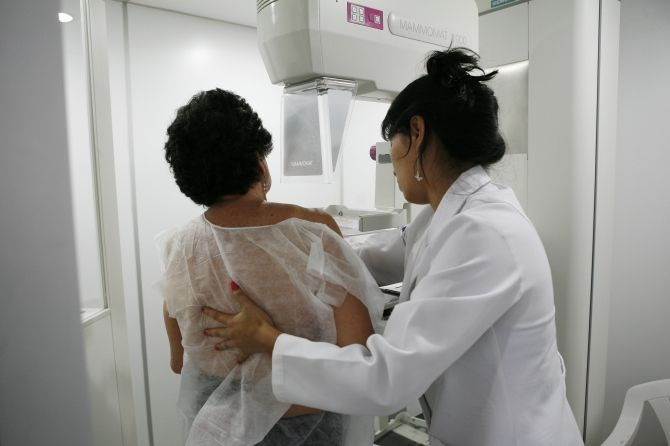National Breast Cancer Awareness Month: Seven Tips to Make Breast Cancer Screening Easier

In celebration of National Breast Cancer Month, health experts are stressing the importance of mammogram screenings, especially for women aged 40 and older.
For those of you who have never undergone breast cancer screening, a mammogram is an x-ray picture of the breast. Mammograms usually involve two x-ray pictures, or images, of each breast. The x-ray images make it possible to detect tumors that cannot be felt. Screening mammograms can also find microcalcifications (tiny deposits of calcium) that sometimes indicate the presence of breast cancer, according to the National Cancer Institute.
Nearly 85 percent of mammograms can detect most types of breast cancers way before a lump can be felt.
Even with many experts stressing the importance of an annual exam, many women still avoid breast cancer screening. Some women say it is an uncomfortable and painful feeling, while others are fearful of the results.
A famous Babe Ruth phrase reads, "Never let the fear of striking out keeps you from playing the game." Women should never let the fear of being diagnosed with cancer, keep them from early detection. Here are seven tips to make breast cancer screening easier.
1. There is a right time for everything: most experts suggest scheduling a mammogram 10 days prior to your menstrual cycle.
2. Avoid Caffeine: caffeine can cause breast tenderness making your mammogram even more painful. Opt for caffeine-free beverages seven days prior to your exam.
3. Pop a pain reliever: be sure to ask your doctor about any medication, but over-the-counter pain relievers such as Advil and Motrin that can help reduce the pain.
4. Don't be shy: if you feel pain, let the technician know. A different position may help ease the pain.
5. Relax: being tense can make the touch exaggerated.
6. If you have breast implants, be sure to notify staff so they can obtain special mammogram views, alongside standard mammogram images.
7. Last but not least: breathe. Most technicians suggest exhaling once compression begins to reduce the pinching feeling.



























